For many, social media use during rehabilitation may feel like a very useful crutch. In some cases, and in some regards, it very much can be. Getting to socialize with one’s peers, showcase progress, and rebuild self-esteem might help one recover. However, social media impacts addiction recovery in WV and beyond in many different ways – some distinctly negative.
In our premier West Virginia treatment center, we at Harmony Ridge Recovery have seen both sides of this coin manifold. As such, in this article we’d like to explore this subject in some depth. We won’t condemn the practice nor sing its praises; we’d rather let data, research, and experience inform your final verdict.
So, without further ado, let’s begin.
Is social media use addictive?
First, we’ll have to tackle the most pressing factor in this context; if social media use itself is addictive. A simple Google search will return ample literature that asserts so, or treats it as if it is. And while it may be easy and simple to do so and move on, we feel we’d best be thorough.
First, PubMed makes an important distinction:
“Disordered social media use, often referred to as “social media addiction”, has not been officially recognized by medical bodies such as the American Psychiatric Association or the World Health Organization. However, websites still present information to laypeople on how to treat and manage social media addiction, which can pose the risk of spreading low quality or incorrect information.”
However, it recognizes that “social media addiction” both sees widespread use and actually reflects real, existing patterns of harmful behavior. As such, it notes:
“Social media addiction (SMA) led to the formation of health-threatening behaviors that can have a negative impact on the quality of life and well-being. Many factors can develop an exaggerated tendency to use social media (SM), which can be prevented in most cases.”
So, why is this question so complex? Either social media impacts addiction recovery in WV or it does not. Well, there are a few different issues at hand:
- SMA may not fit the criteria for a use disorder or addiction classification
- Social media use may still produce addiction-adjacent or addiction-enabling behavioral patterns
- SMA’s impact on mental health may still inhibit Substance Use Disorder (SUD) recovery
With these in mind, you can likely see why researchers and healthcare professionals disagree to this extent. With this in mind, let’s briefly explore deeper.
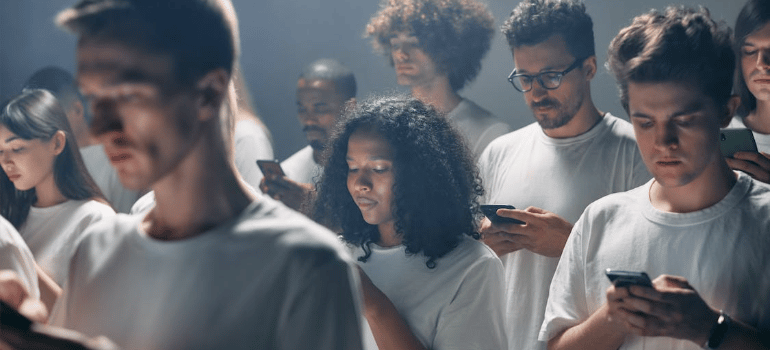
Internet addiction
For one, social media addiction hinges strongly on internet addiction; one can’t have social media without the internet, after all. Perhaps the public discussion has indeed shifted away from internet use and toward social media use, but their relationship remains.
Even in this regard, scientists disagree vehemently. Not so much on the essence of use causing harm, but on definitions, diagnostics, and interventions. For example, NCBI’s Ronald Pies quotes addiction specialist Stuart Gitlow MD:
“…the medical term “addiction” should not be applied to anything other than addictive drug use and gambling. The public uses the term [addiction] as an equivalent of overuse but the medical definition is based on ‘use despite one’s best interest,’ and quantity of use has nothing to do with that…”
And yet, he too agrees that the truth “will become clear as time passes and research is conducted”. Problematic internet use is recognized, as are its effects on the individual. Video game addiction, typically internet-based, is now included in the International Classification of Diseases (ICD-11) as well.
Social Networking Site (SNS) addiction
So, despite definitions, it’s already likely that social media impacts addiction recovery in WV. It seems likely to be harmful, but why?
Using the term “SNS addiction” for SMA, PsychSceneHub asserts that internet use disorders share underlying neurobiological mechanisms with SUDs. In simple terms, this means that the brain reacts to both in similar ways – sometimes adapting over time to best facilitate them.
APA agrees as well, explaining that:
“We know that social media activity is closely tied to the ventral striatum. This region gets a dopamine and oxytocin[, the “happy hormones”,] rush whenever we experience social rewards.”
As such, whether social media use is “use despite one’s best interest” or not, its effects on the brain seem demonstrable. It may or may not be entirely akin to SUDs, as science still disagrees, but indications seem to point in that direction.
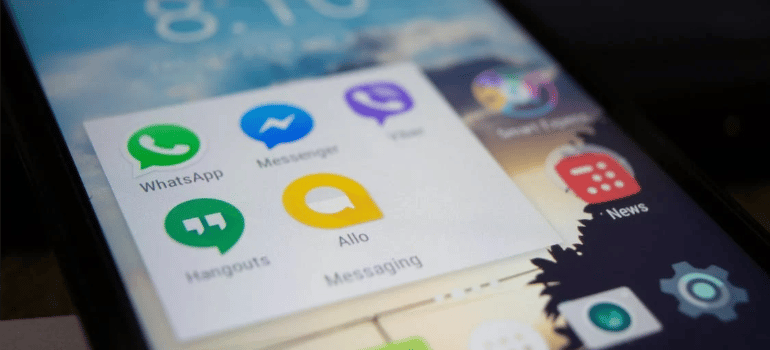
Obsessive-compulsive and related disorders
The final point, which should best explain how social media impacts addiction recovery in WV, is its manifested effects. Here, citing DSM-5’s criteria, NCBI lists the definitions of obsessive-compulsive and related disorders. Consider some like the following:
- “Recurrent and persistent thoughts, urges or images that are experienced, at some time during the disturbance, as intrusive, unwanted, and that in most individuals cause marked anxiety or distress”.
- “The individual attempts to ignore or suppress such thoughts, urges, or images, or to neutralize them with some thought or action (i.e., by performing a compulsion)”.
- “The obsessions or compulsions are time consuming (e.g., take more than 1 hour per day) or cause clinically significant distress or impairment in social, occupational, or other important areas of functioning”.
Do those seem familiar or fitting? They should; excessive social media use is indeed characterized by such behaviors. Compulsive social media use is readily observable, and so is the inability to stop using social media. Obsessive preoccupation with them, even on downtime, is observed. And, most importantly, social media use can indeed cause significant depression, anxiety, and impair social functions.
Dual diagnosis; how mental health overlaps with substance use
So, where’s the link between social media use and substance use? For one, there’s the neurobiological one, where the brain is stimulated in similar ways.
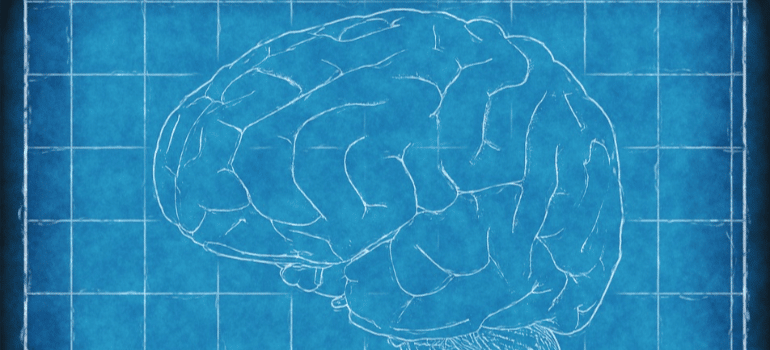
However, the most crucial connection lies in mental health. Dual diagnosis finds that mental health disorders can very often overlap with SUDs, with one leading to the other. And as social media use can cause or exacerbate mental health issues, it can thus kindle SUDs. Frankly, this is the most direct way in which social media impacts addiction recovery in WV and beyond.
Mental health disorders that dual diagnosis can identify include:
- Anxiety
- Bipolar disorder
- Depression
- Eating disorders
- Personality disorders and borderline personality disorders
- Schizophrenia
- Trauma
- Autism
- OCD
- ADHD
- PTSD
Not all are equally relevant here, but anxiety and depression most certainly are as they are direct possible products. Poor self-image can also lead to eating disorders, especially among younger individuals. Finally, such mental health disorders as autism and bipolar disorder have also been identified in cases of SMA.
This co-occurrence is far from uncommon, at that. In numbers, NIDA finds that 37.9% of adults with SUDs also have mental illnesses, and 18.2% of adults with mental illness also have an SUD. As you can see, this phenomenon is far too prevalent to ignore – and so is its deep connection with social media use.

The use of social media in rehab
The deeper reason this is all concerning and worth discussing is that social media use is quite common in rehab. Namely, virtually every type of addiction rehab will see some social media use in one stage or another, including:
- Alcohol rehab
- Cocaine rehab
- Stimulants rehab
- Heroin rehab
- Marijuana rehab
- Opiate rehab
- Meth rehab
- Fentanyl rehab
- Ambien rehab
- Barbiturates rehab
Notably, some programs do restrict internet, mobile, or social media use specifically. Most notably, medication-assisted treatment (MAT) and inpatient drug rehab in WV may do so, as the individual is still in clinical settings. However, social media impacts addiction recovery in WV because that’s not always possible throughout:
- Partial Hospitalization Programs (PHPs); some addiction cases may best be suited for a partial hospitalization program West Virginia has to offer. These programs allow the individual to stay at home, however, and so they can’t restrict or moderate social media use.
- Intensive Outpatient Programs (IOPs); following one’s progress through rehab, the individual may continue to an intensive outpatient program West Virginia treatment providers suggest. These programs too offer residential freedom, making unsupervised social media use much more likely.
At a human level, this is very much understandable. One may seek connections, and doing so through social media may not at all times be inherently bad. However, with all of the above in mind, it can indeed be risky.
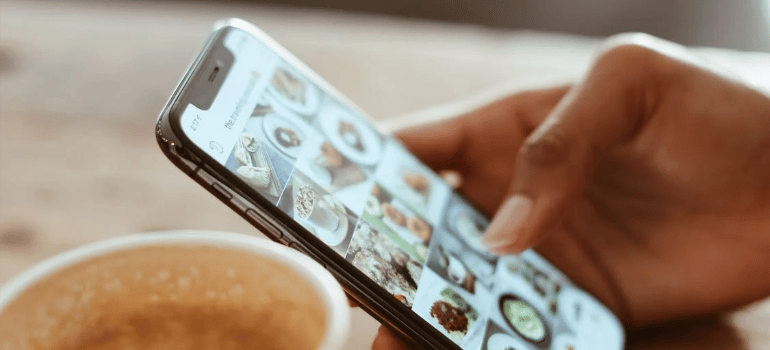
How social media impacts addiction recovery in WV; risks and considerations
So, here we can now outline exactly why social media use during rehab can present risks. With all of the above in mind, and in no particular order, consider the following.
Addiction transfer
First, excessive social media use can fuel dependence. It may not be addiction in the strictest, scientific sense of the word, but we’ve outlined how distinctly unhealthy it can be. As such, especially for individuals new to the internet or social media, an addiction transfer may occur.
This phenomenon is similar to how recovering alcoholics crave sugar, and may end up substituting alcohol with it. In this case, harmful behavioral patterns caused by addiction may be substituted with social media dependence.
Increased anxiety
Similarly, social media use can cause increased anxiety and fuel depression. Needless to say, this can be catastrophic for rehab – even outside of dual diagnoses. Holistic therapy dictates that the mind must heal alongside the body, and strains on mental health go directly against that.
In this sense, social media use can directly inhibit one’s recovery by exacerbating underlying mental health issues. And while clinicians and therapists can assist in this regard during initial stages, later rehab stages do not offer this safeguard.
Negative self-image
Another very notable factor lies in perceptions of self-image. This is particularly present in rehab for young adults, but not exclusively so. Any individual’s perception of their self-image can affect their confidence and sense of self-reliance, making recovery harder.
As such, social media impacts addiction recovery in WV by affecting mental health in this way as well. A lack of confidence, especially in cases where addiction has caused bodily damage, can deprive one of recovery capital. In extreme cases it may even fuel eating disorders, which are notably harmful within or outside of rehab.
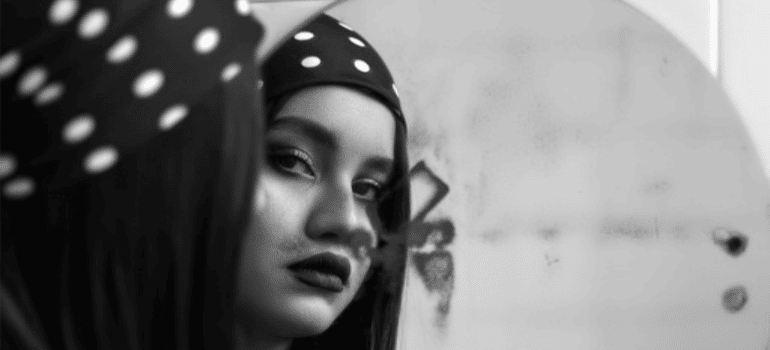
Inhibition of social skills
In addition, as research above highlights, excessive social media use can significantly diminish social skills. This too is particularly present in younger developing individuals, but does not discriminate by age.
This is very notable, as aftercare programs hinge strongly on relapse prevention through socialization. 12-step programs, and other such practices require social skills to carry through. And alongside them, the individual’s own mental recovery and wellbeing relies on proper socialization to build friendships and peer support networks.
Exposure to triggers
Finally, albeit slightly more rarely, social media can directly expose recovering individuals to harmful triggers. Those may be simple depictions of substance use in art, casual mentions of euphoric effects of substance use, and more. They will vary, and so will their effect on the individual, but they’re still very noteworthy.
Among the most crucial skills one can acquire during rehab is trigger management. Avoiding harmful triggers has a demonstrable benefit in preventing chronic relapse, especially for more severe cases. Therefore, being exposed to such triggers voluntarily may be among the most damaging practices one can engage in.

Is social media use during addiction recovery entirely negative?
All that said, exactly how social media impacts addiction recovery in WV and beyond will differ considerably. In many cases, treatment providers may find some use in social media as a therapeutic recreational tool. As such, here we can conclude by highlighting that social media can also have some positive effects.
- Deciding on a case-by-case basis. First and foremost, every case of addiction will differ from the next. As such, treatment providers may decide on the best course of action on a case-by-case basis. Milder cases, strong mental resolves, and robust existing support networks may influence their recommendations. If social media use doesn’t visibly impact relapse prevention strategies it may be considered.
- Use in moderation. Second, use in moderation can certainly limit risks somewhat. With strong case management, addiction treatment providers may feel confident in the safety of social media use. Typically, earlier rehab stages which entail more supervision will help inform this decision.
- Open communication channels with therapists. Finally, as the individual leaves supervision and clinical settings by progressing through different levels of care, aftercare programs should ideally maintain open communication channels. If the individual does remain in contact with treatment providers, they may feel more confident in the ability to remedy potential harmful effects of social media use as they emerge post-rehab.

In summary
To summarize, social media can indeed have some beneficial effects on rehab. In specific cases, when used in moderation, social media use may give an individual an outlet and a helpful tool. However, there are also many negative ways in which social media impacts addiction recovery in WV, as outlined above. While science still draws conclusions, there are demonstrable mental health concerns that should be taken into account.
If you or your loved ones are in need of addiction treatment, we at Harmony Ridge are at your service. With a keen focus on evidence-based programs and a dedication to personalization, our specialists are fully equipped to help craft the perfect journey to recovery for every case of addiction. If you feel ready, please contact us today and begin to reclaim the life you deserve with our professional support.



